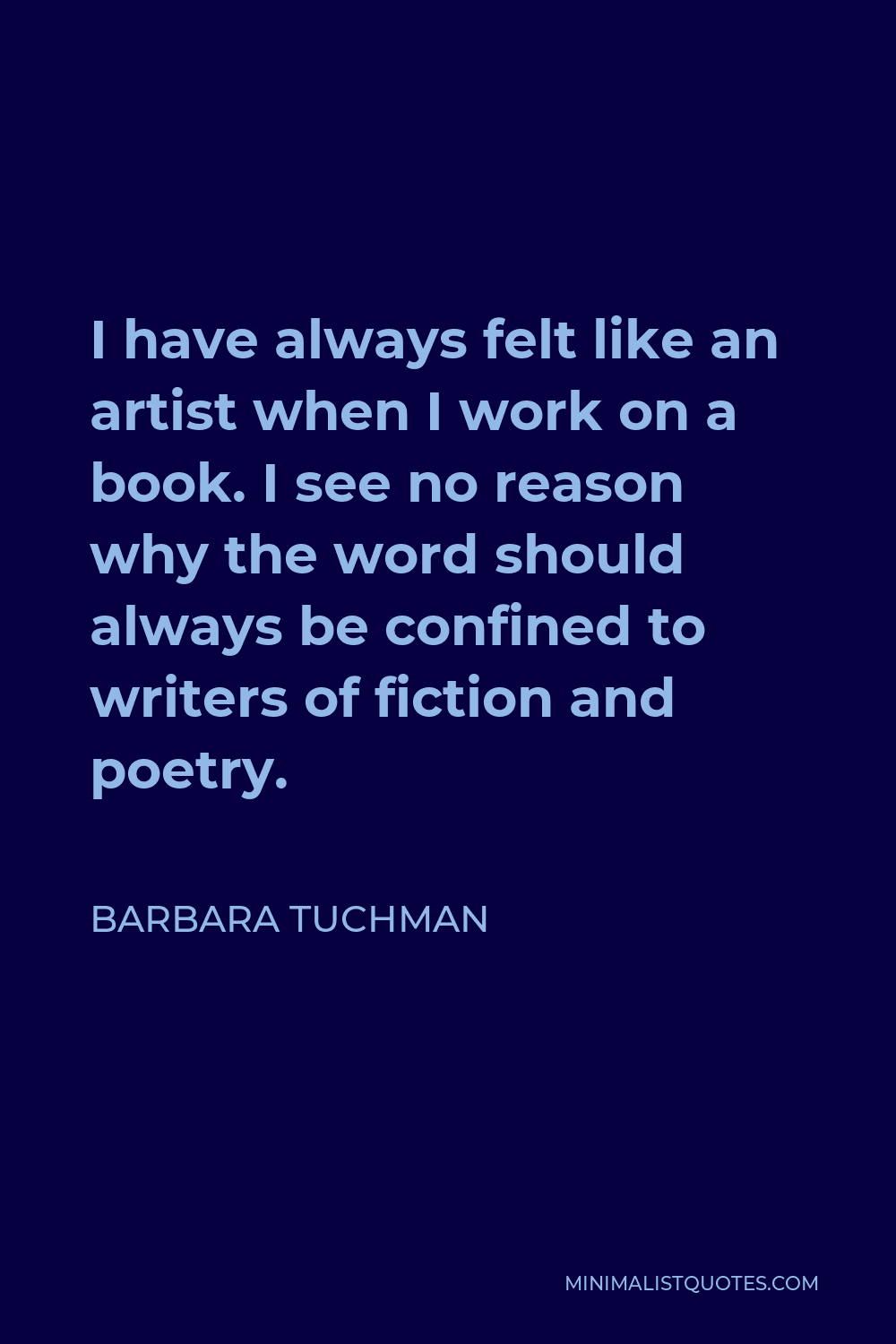Christianity in its ideas was never the art of the possible.
BARBARA TUCHMANI have always felt like an artist when I work on a book. I see no reason why the word should always be confined to writers of fiction and poetry.
More Barbara Tuchman Quotes
-





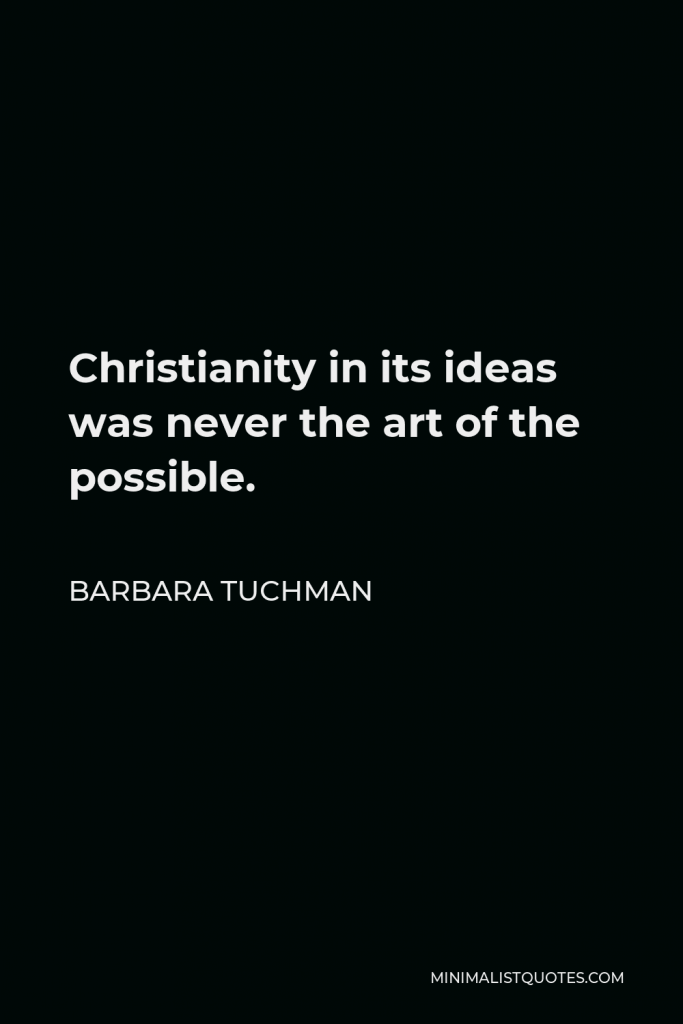

-





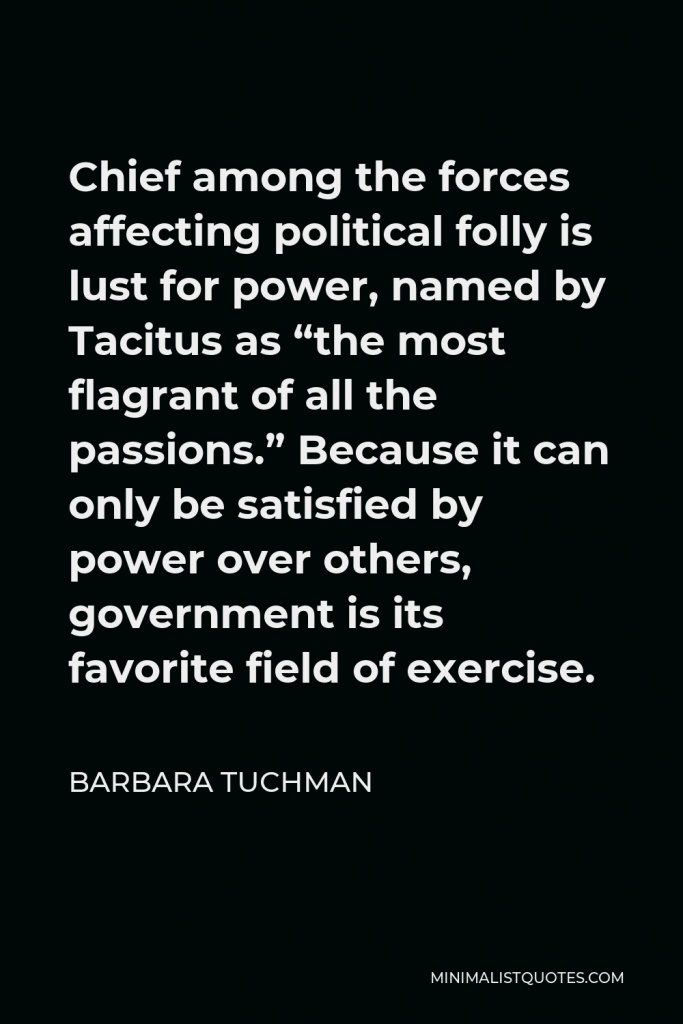

Chief among the forces affecting political folly is lust for power, named by Tacitus as “the most flagrant of all the passions.” Because it can only be satisfied by power over others, government is its favorite field of exercise.
BARBARA TUCHMAN -





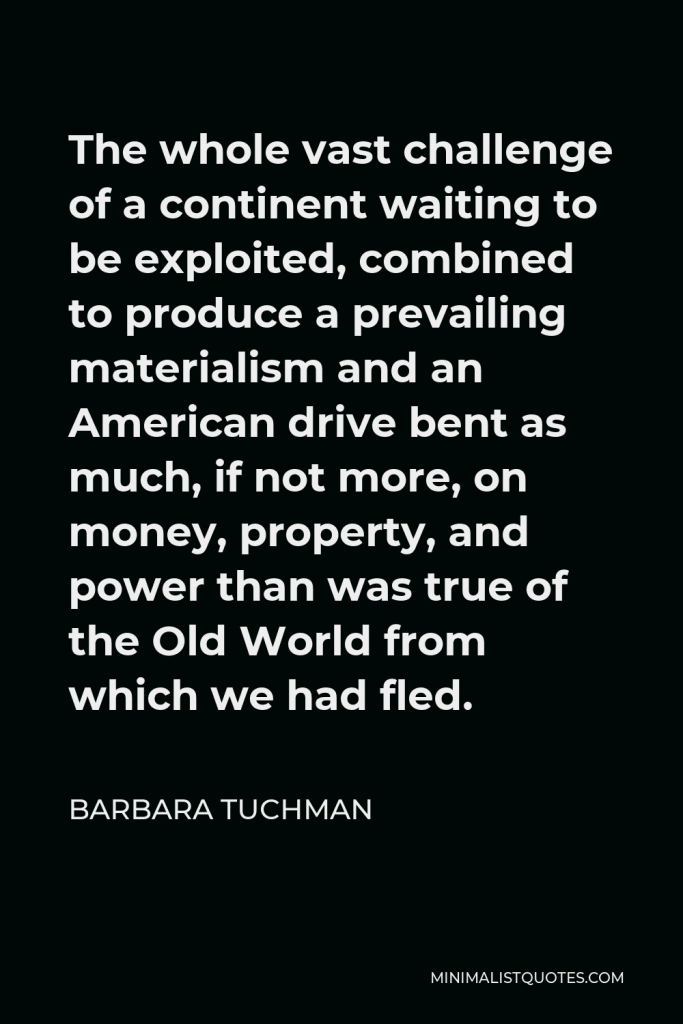

The whole vast challenge of a continent waiting to be exploited, combined to produce a prevailing materialism and an American drive bent as much, if not more, on money, property, and power than was true of the Old World from which we had fled.
BARBARA TUCHMAN -





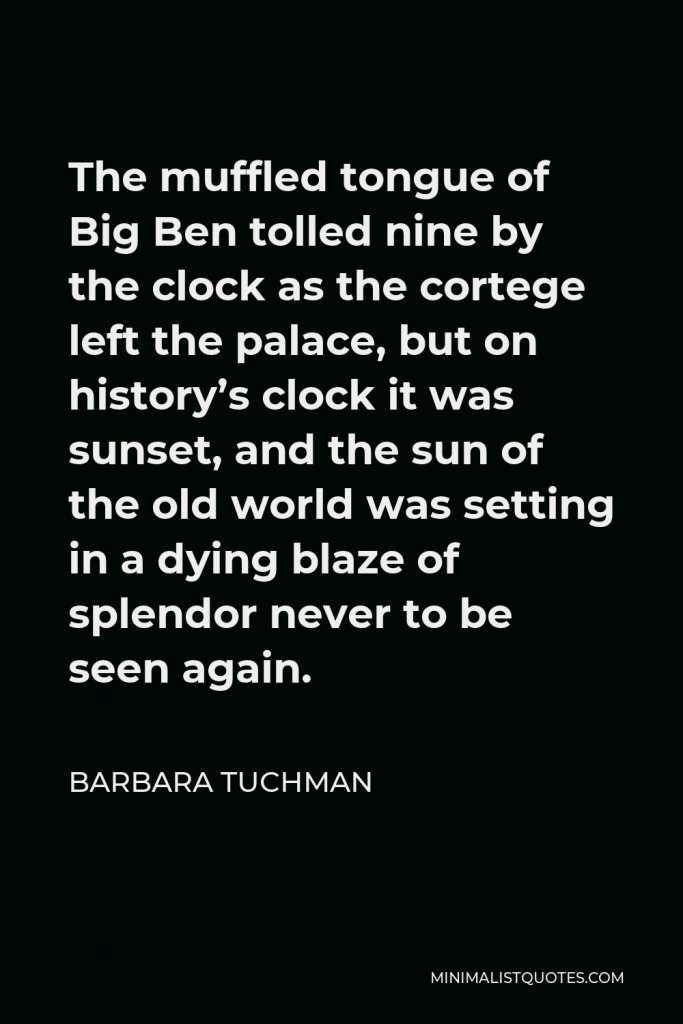

The muffled tongue of Big Ben tolled nine by the clock as the cortege left the palace, but on history’s clock it was sunset, and the sun of the old world was setting in a dying blaze of splendor never to be seen again.
BARBARA TUCHMAN -





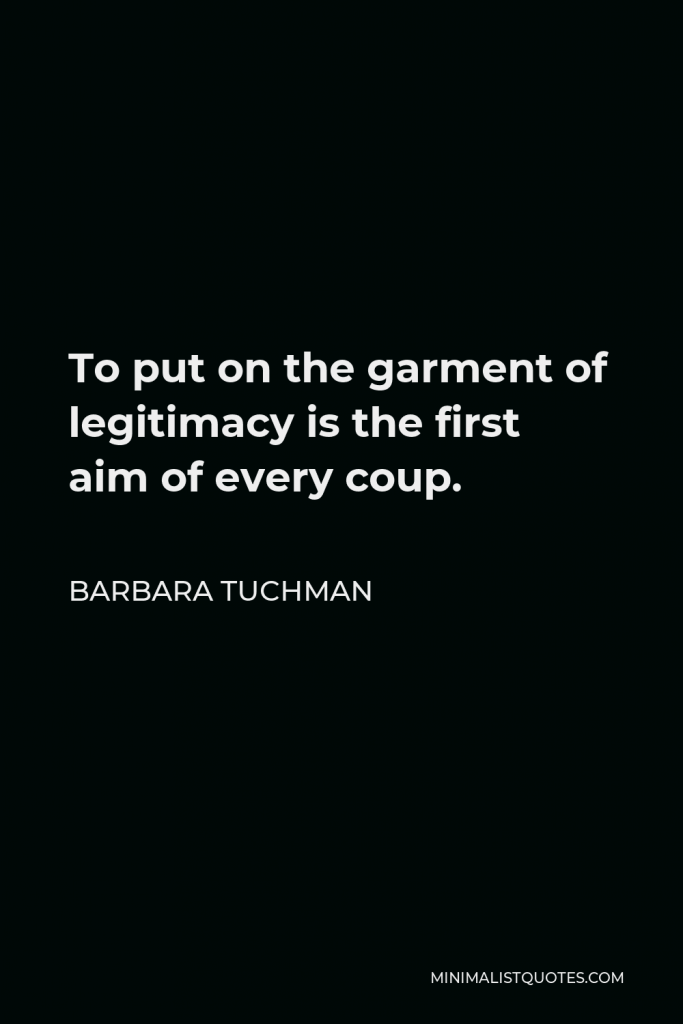

To put on the garment of legitimacy is the first aim of every coup.
BARBARA TUCHMAN -







Business offers a kind of power, but only to the very successful at the top, and without the dominion and titles and red carpets and motorcycle escorts of public office.
BARBARA TUCHMAN -





![Barbara Tuchman Quote - No economic activity was more irrepressible [in the 14th century] than the investment and lending at interest of money; it was the basis for the rise of the Western capitalist economy and the building of private fortunes-and it was based on the sin of usury.](https://minimalistquotes.com/images/no-economic-activity-was-more-irrepressible-in-the.jpg)
No economic activity was more irrepressible [in the 14th century] than the investment and lending at interest of money; it was the basis for the rise of the Western capitalist economy and the building of private fortunes-and it was based on the sin of usury.
BARBARA TUCHMAN -





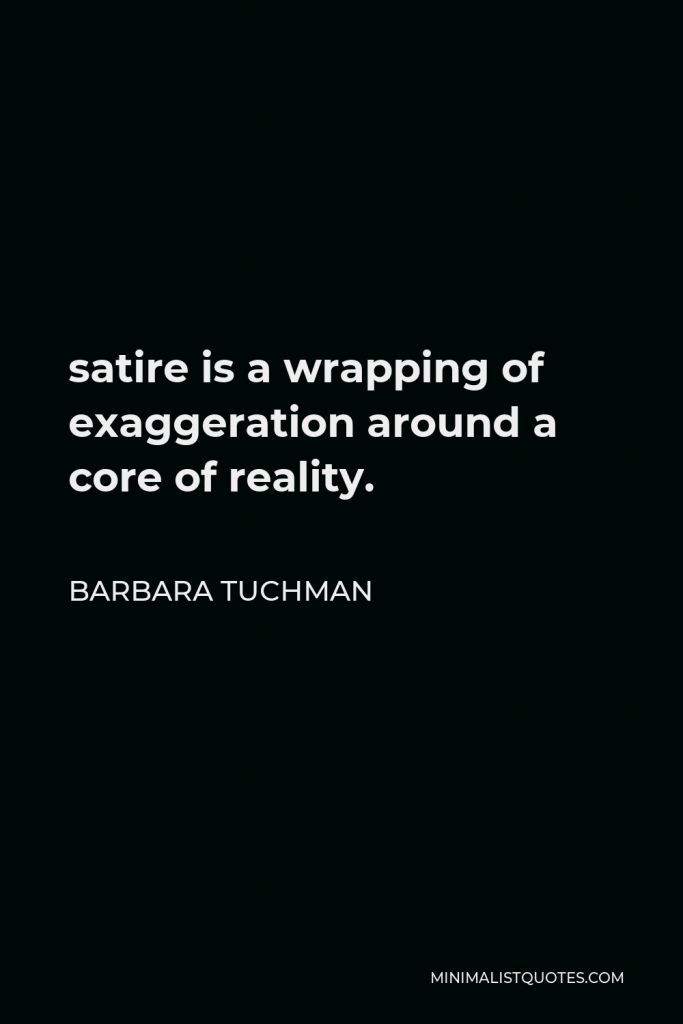

satire is a wrapping of exaggeration around a core of reality.
BARBARA TUCHMAN -





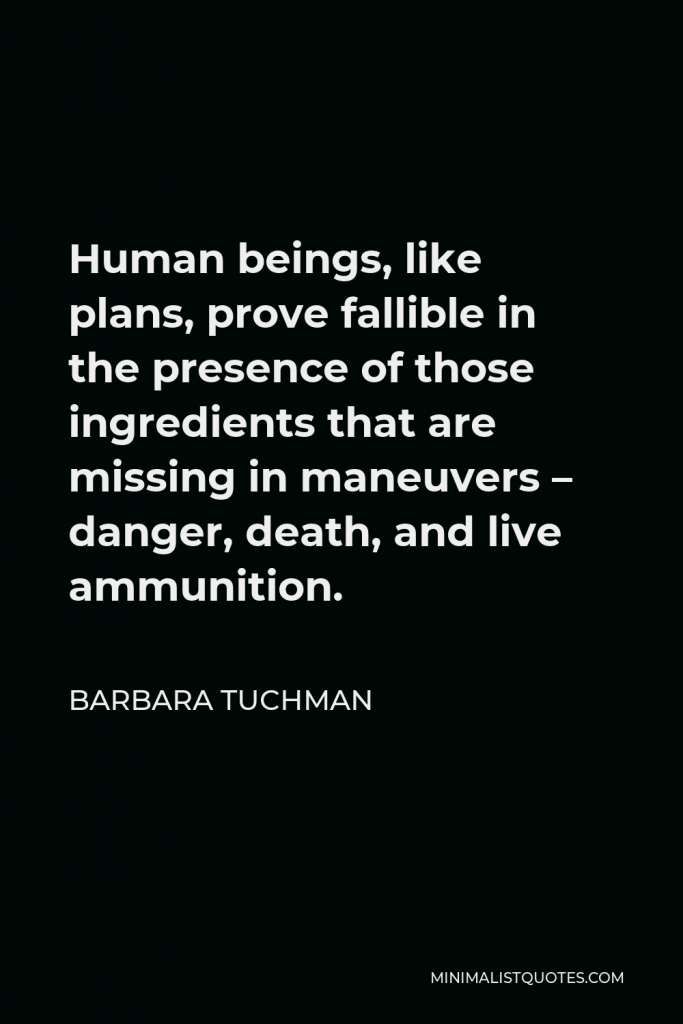

Human beings, like plans, prove fallible in the presence of those ingredients that are missing in maneuvers – danger, death, and live ammunition.
BARBARA TUCHMAN -





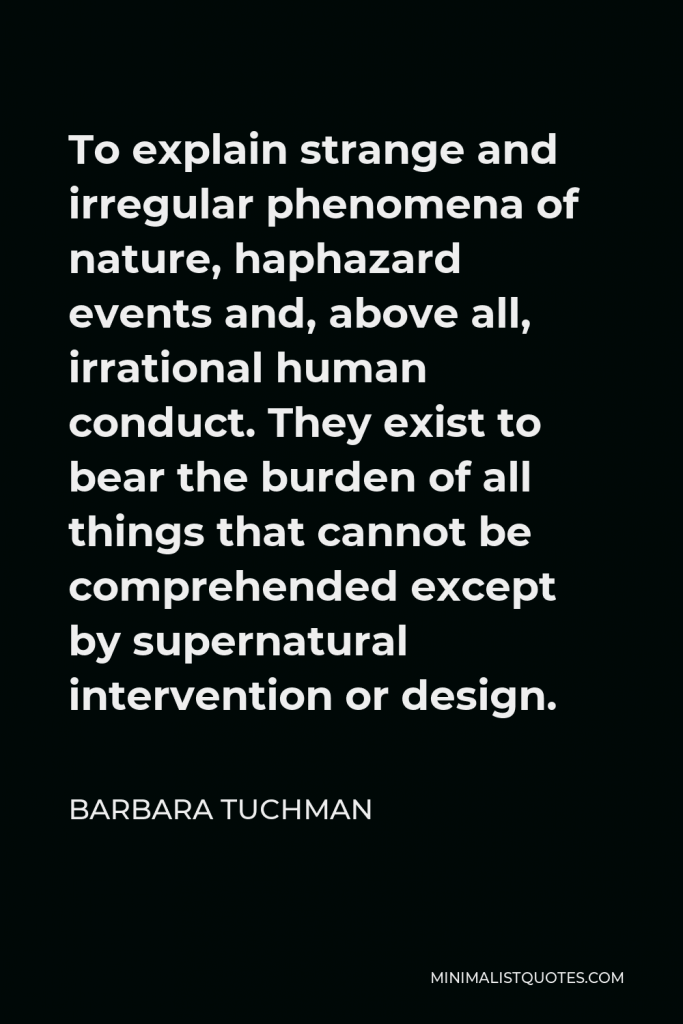

To explain strange and irregular phenomena of nature, haphazard events and, above all, irrational human conduct. They exist to bear the burden of all things that cannot be comprehended except by supernatural intervention or design.
BARBARA TUCHMAN -





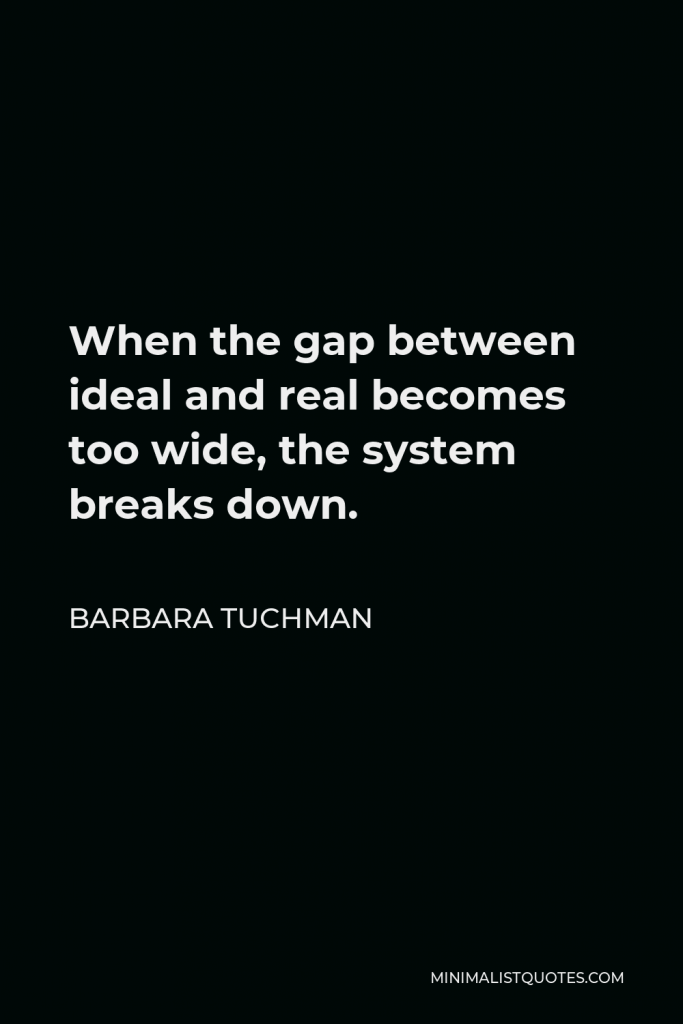

When the gap between ideal and real becomes too wide, the system breaks down.
BARBARA TUCHMAN -





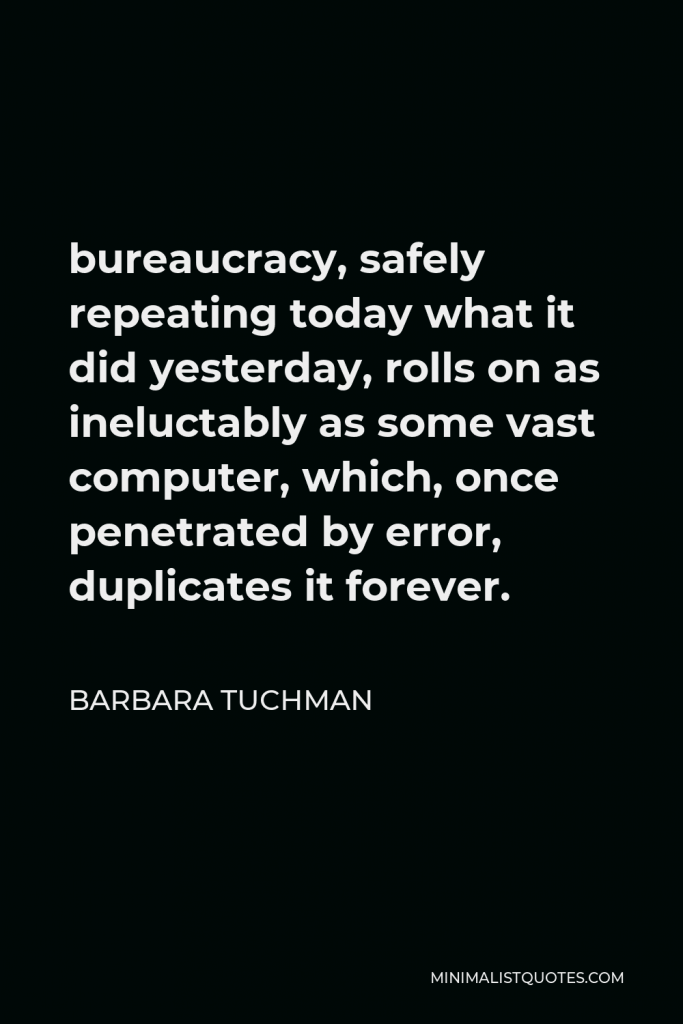

bureaucracy, safely repeating today what it did yesterday, rolls on as ineluctably as some vast computer, which, once penetrated by error, duplicates it forever.
BARBARA TUCHMAN -





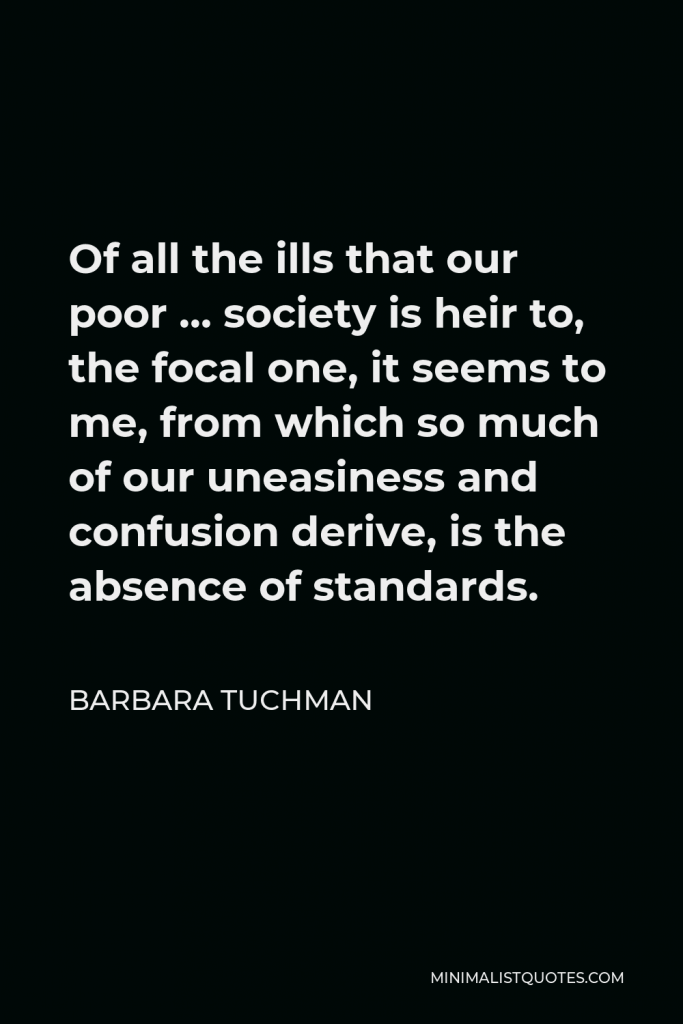

Of all the ills that our poor … society is heir to, the focal one, it seems to me, from which so much of our uneasiness and confusion derive, is the absence of standards.
BARBARA TUCHMAN -





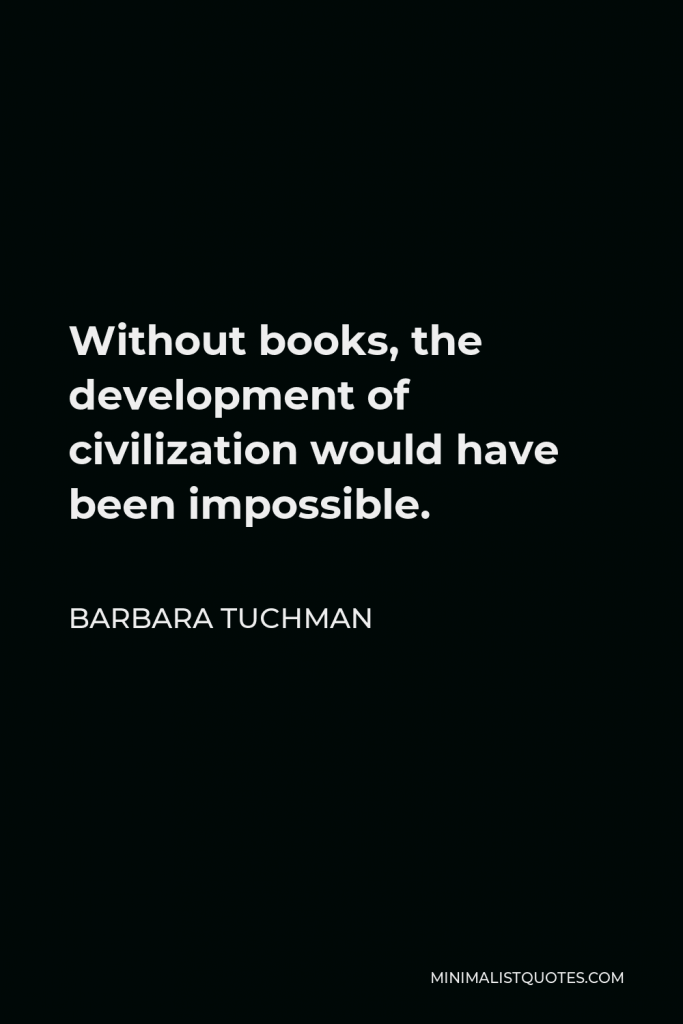

Without books, the development of civilization would have been impossible.
BARBARA TUCHMAN -





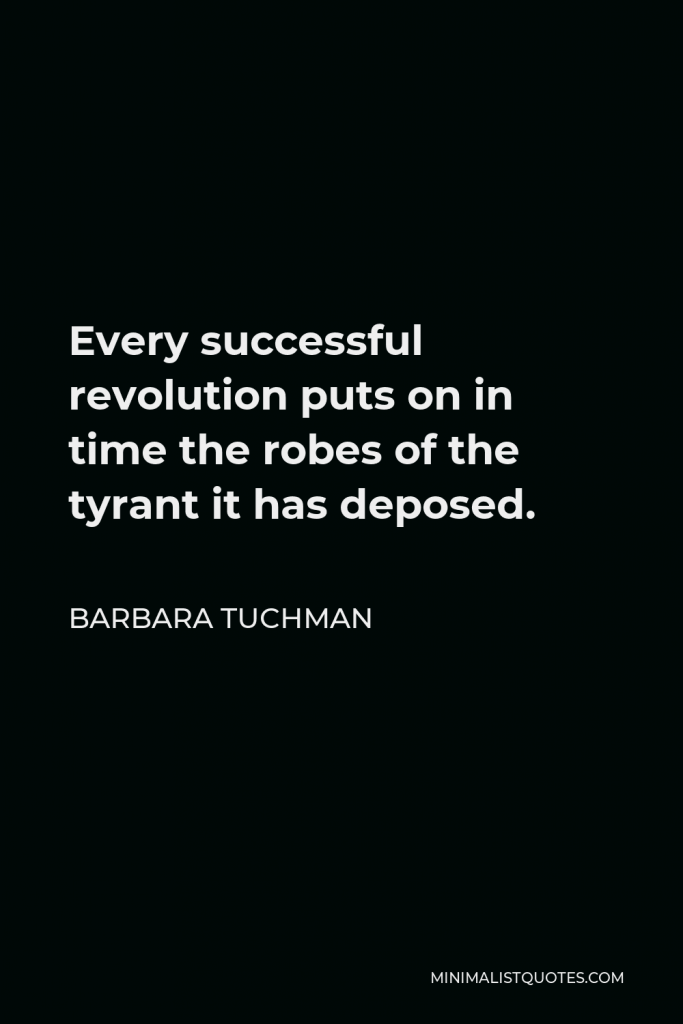

Every successful revolution puts on in time the robes of the tyrant it has deposed.
BARBARA TUCHMAN -





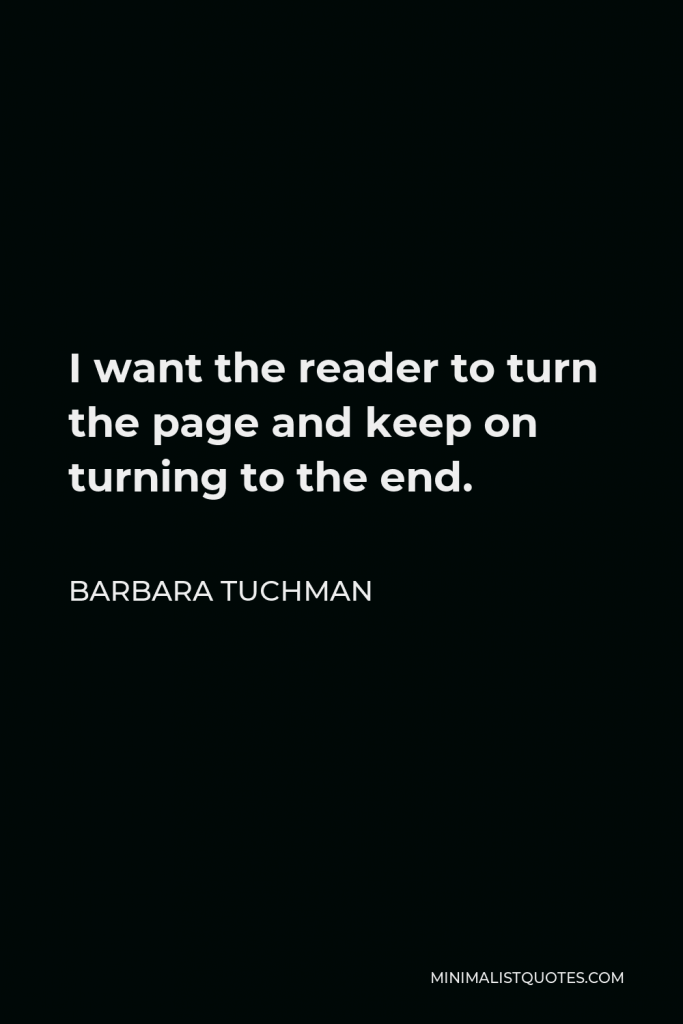

I want the reader to turn the page and keep on turning to the end.
BARBARA TUCHMAN


